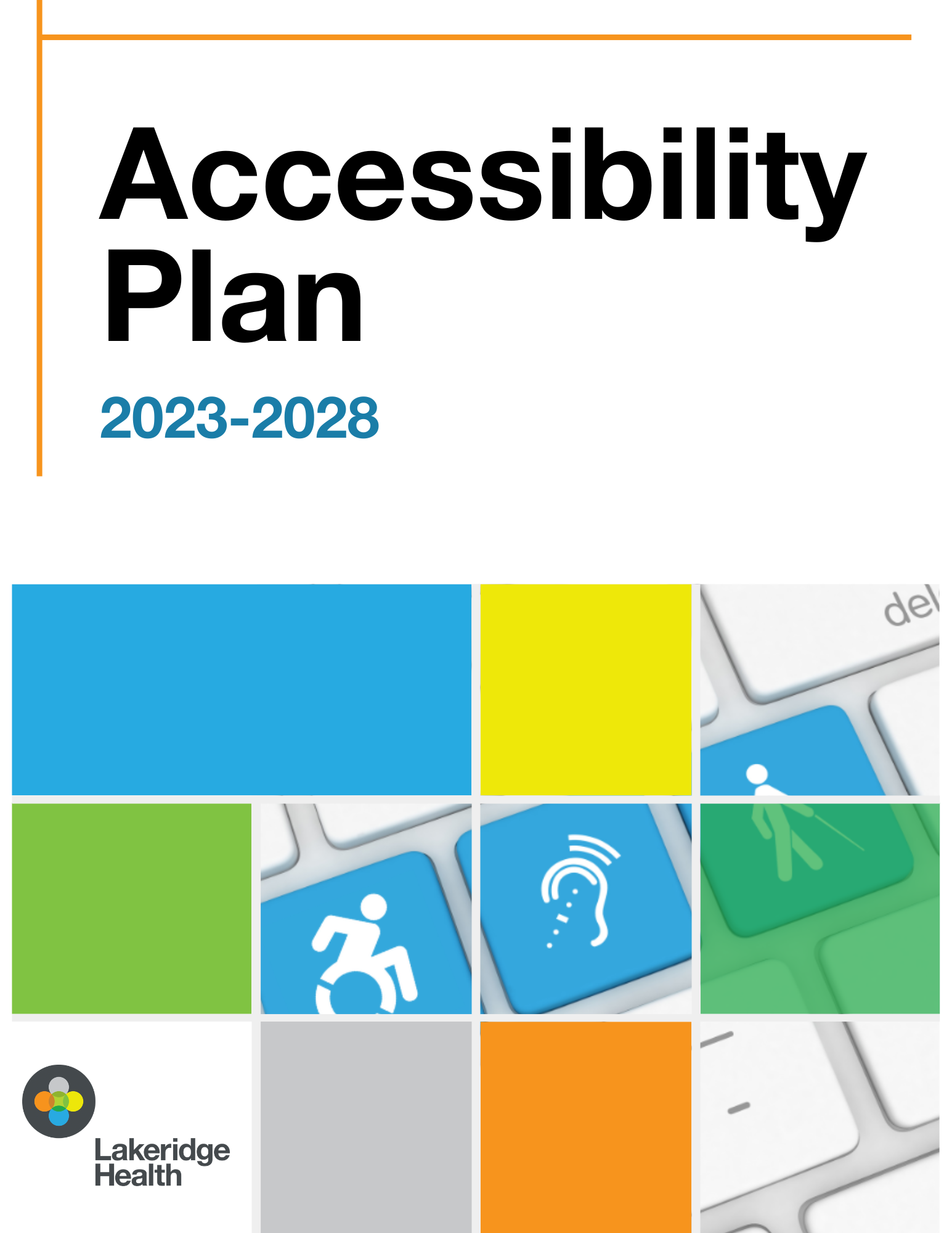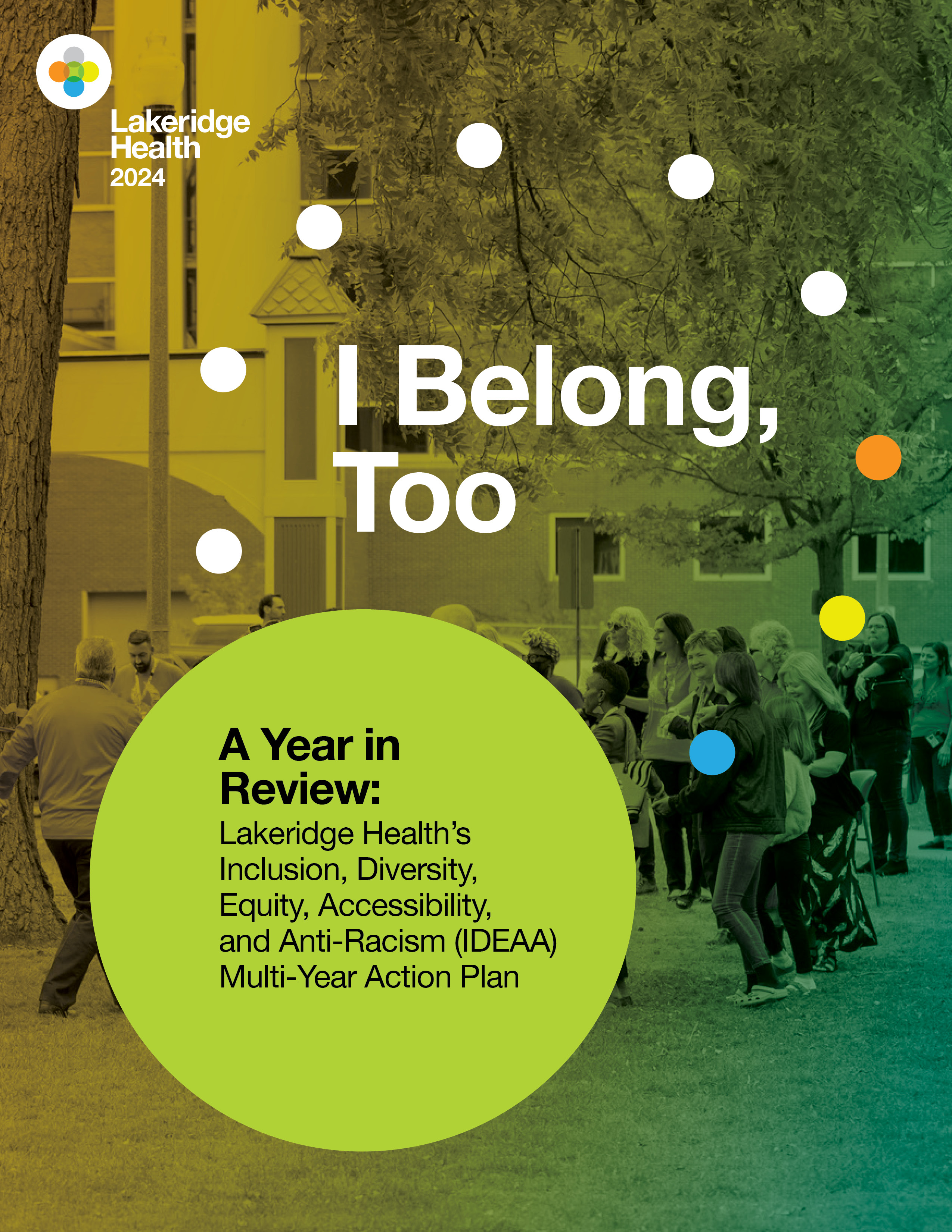Inclusion, Diversity, Equity, Accessibility, and Anti-Racism
2023-2028 Accessibility Plan
 At Lakeridge Health, we know that, in order to truly deliver patient-centred care and promote psychological safety in the workplace, everyone’s accessibility needs must be considered from the start. As the largest health-care provider and employer in Durham Region, we are dedicated to ensuring equal access for all individuals with disabilities – including patients, families, visitors, along with our staff, physicians, and volunteers.
At Lakeridge Health, we know that, in order to truly deliver patient-centred care and promote psychological safety in the workplace, everyone’s accessibility needs must be considered from the start. As the largest health-care provider and employer in Durham Region, we are dedicated to ensuring equal access for all individuals with disabilities – including patients, families, visitors, along with our staff, physicians, and volunteers.
Our five-year Accessibility Plan is an important step forward in these efforts and our overall Inclusion, Diversity, Equity, Accessibility and Anti-Racism (IDEAA) Multi-Year Action Plan.
Shaped through community conversations, a disability justice audit of our five hospitals, team member engagement surveys, and insights from our partners at the Abilities Centre, our 2023-2028 Accessibility Plan outlines what has been completed and the barriers that will be addressed in four key areas, including:
-
Organizational, planning, and transparency initiatives.
-
Technology, information, and communication enhancements.
-
Efforts to foster an inclusive workplace.
-
Improvements to the design of physical spaces.
Inclusion, Diversity, Equity, Accessibility, and Anti-Racism Multi-Year Action Plan

In the summer of 2023, we proudly unveiled I Belong, Lakeridge Health’s Inclusion, Diversity, Equity, Accessibility, and Anti-Racism (IDEAA) Multi-Year Action Plan. This plan represents the culmination of years of deep engagement with both our internal teams and the broader community, solidifying our unwavering commitment to embedding IDEAA principles across our organization.
As we mark the completion of the first year of this three-year journey, we are excited to share I Belong Too, a report detailing the first 365 days of our transformative efforts. It highlights the progress we've made, the challenges we've faced, and the steps we’re taking to maintain this momentum as we move into the second year.
At the heart of our IDEAA initiatives is a dedication to collaboration and building strong relationships. We invite you to connect with us at inclusion@lh.ca to share your thoughts and feedback.
Hear directly from our leadership about what IDEAA means at Lakeridge Health by watching our video and read the original IDEAA Multi-Year Action Plan.
Quick Links to Resources
Digital Resources |
|
Learning Toolkits/Interactive Resources |
|
Readings |
Racism in Ontario and Canada
Racism and Health
Resources specifically for BIPOC (Black, Indigenous People and People of Colour)
For White Allies
· Ontario Health’s (Cancer Care Ontario) Indigenous Relationship and Cultural Safety Course o A series of free online courses to help individuals working with First Nations, Inuit and Métis people. The courses support a call to action made in the 2015 Truth and Reconciliation Commission of Canada report. These 13 courses provide knowledge about the history and culture of First Nations, Inuit and Métis people and communities. |
